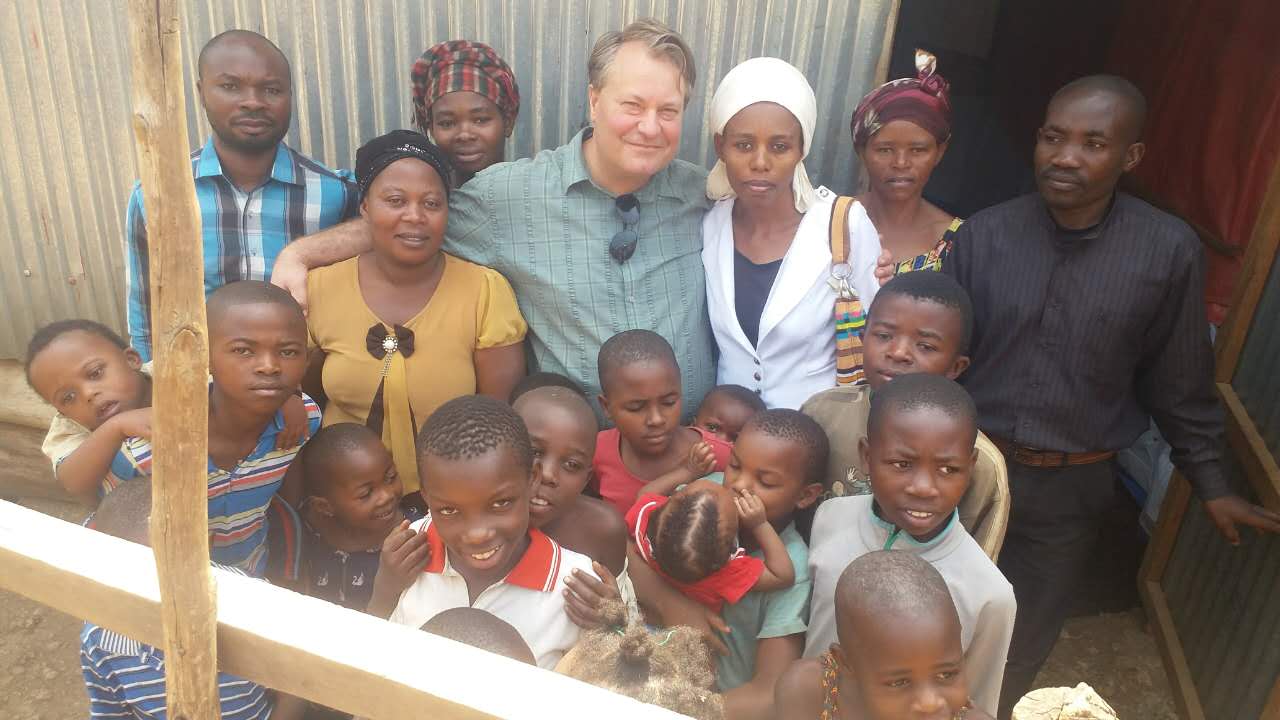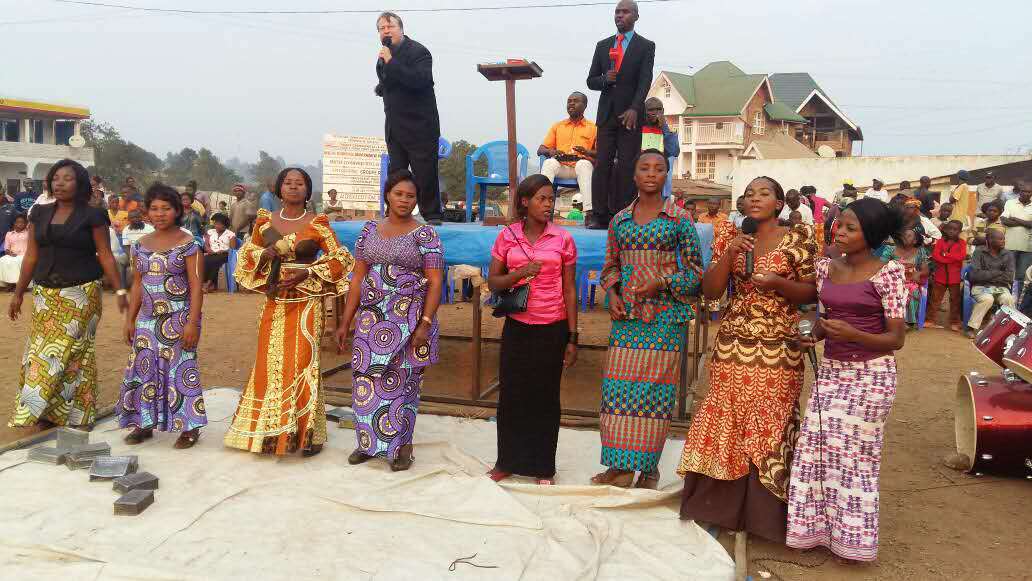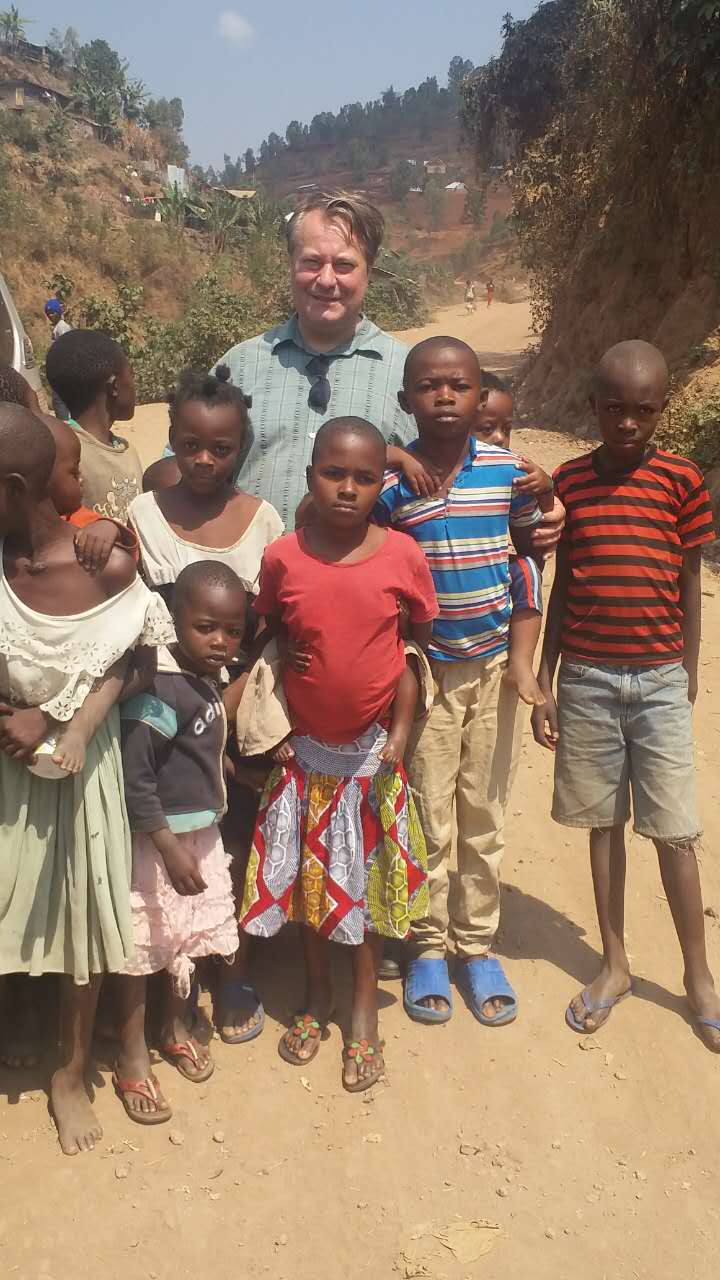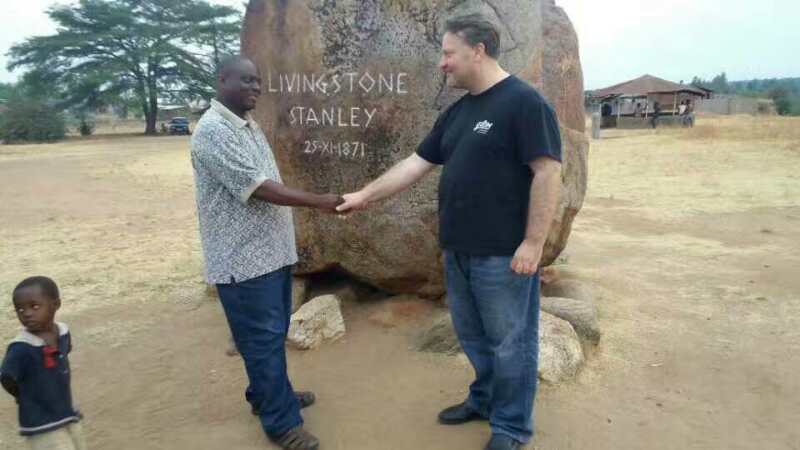By Dr. Miro Atanasov, a professor at Remnin University in Beijing
Last month I visited the Democratic Republic of the Congo (DRC) - a large and important country in the heart of Africa. Also called "the Congo" or "Congo-Kinshasa" (to be distinguished from the Republic of Congo or "Congo-Brazzaville" – a neighboring French colony), it is paradoxically both the world’s wealthiest and poorest nation at the same time. Rich, because of the huge untapped mineral reserves in its soil, estimated at over US$ 24 trillion, but the poorest on the human index scale as the scramble for resources has worsened local living conditions.

Dr. Miro Atanasov with people in the slum areas of Bukavu, DRC.
Nevertheless, I spent two weeks in the city of Bukavu, located at Lake Kivu - Congo's border with the nations of Rwanda and Burundi. The climate was pleasant and the locals showed me great hospitality. I taught a leadership and development seminar for community organizers and social workers. I also gave motivational speeches at an open-air festival with lots of music and dancing.

Open air celebration.
I spoke on TV and radio to inspire the nation. My schedule was busy and even though there wasn’t much time for tourism I enjoyed the country and its people. The locals actively taught me Swahili - the most commonly-used language in Congo's Eastern provinces.

Dr. Miro Atanasov with children in the poor neighbourhoods of Eastern Congo.
While there I met Chinese people on several occasions and surprised them with my limited Mandarin abilities. Many Chinese contract workers reside in the Congo participating in mining and infrastructure operations.
The relationship between the Congo and China dates back to the Qing dynasty when King Leopold II actively recruited Chinese menial laborers for the construction of the first railroads in his territory. About 3000 Chinese men went there during the Free State regime, mainly hauling trees and rocks. A great number of them had died due to mistreatment and harsh working conditions.
China remains one of D.R. Congo's most important trade partners. Beijing’s engagement with Kinshasa is a good alternative to the European brutal past legacy and current neo-colonial aid packages. The locals love the Chinese and prefer Beijing’s business and non-interference approach as opposed to the hypocritical and paternalistic western policies.
At a meeting between top diplomats in 2015, Foreign Minister Wang Yi said: "China is a most desirable and reliable long-term partner for D.R. Congo's modernization and industrialization." He pledged deeper cooperation with DRC in the fields of agriculture, industry, infrastructure, culture, peace, security, and international affairs.
On the eve of my arrival to Africa, I visited a memorable historic spot overlooking Lake Tanganyika on the outskirts of Bujumbura, Burundi. Many believe this was the actual place where Henry Morton Stanley, a journalist and adventurer, found and met legendary Scottish missionary Dr. David Livingstone and pronounced his famous line: "Dr. Livingstone, I presume."

At the historic spot where journalist Henry M. Stanley met legendary explorer Dr. David Livingston.
To memorialize their first encounter with "wazungu" (white folk) locals erected a large rock monument. Both Livingstone and Stanley played major roles in the opening of Africa. Undoubtedly westerners have had their share of valuable and positive contributions for the continent’s development. But as China continues to increase its assistance there, learning from the past is absolutely necessary so that a better future can be built for all of Africa’s people.
(The opinions expressed here do not necessarily reflect the opinions of Panview or CCTV.com. )

Panview offers a new window of understanding the world as well as China through the views, opinions, and analysis of experts. We also welcome outside submissions, so feel free to send in your own editorials to "globalopinion@vip.cntv.cn" for consideration.
















